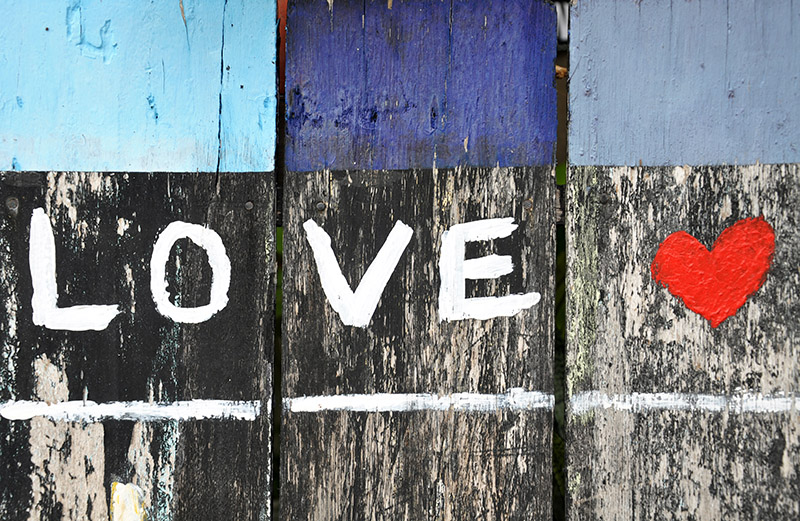- The Meaning of Critical Thinking: A Key Skill for Navigating Today’s Information Landscape - November 3, 2025
- Grandparents Can Develop Activist Grandchildren - September 29, 2025
- Top Six Reasons Credit Union Benefits Are a Smart Choice Over Banks - August 18, 2025
Last Updated on January 27, 2025
How To Handle All the Problems in the World
 How to solve the problems of the world? Most people want to handle all the problems in the world. That’s lovely. But meet Jen, a kind activist trying to make a difference.
How to solve the problems of the world? Most people want to handle all the problems in the world. That’s lovely. But meet Jen, a kind activist trying to make a difference.
Jen spent the last year devoting time to her many activism causes. She does not hesitate to respond to friend’s calls for help on their causes, too. Jen’s goal is how to solve the problems of the world.
Because of this, Jen is overwhelmed and ineffective. Rather than devoting herself to one cause and developing her expertise, she is scattered across many organizations that vie for her help. Exhausted, she steps back and wonders how she can better make a difference.
Like Jen, at first I had a ‘solve all the problems in the world’ approach. I tried doing a little bit for each issue, but rather than feeling useful, I felt scattered and tired.
But once I focused on the cause closest to my heart, I felt motivated and finally started to make a difference.
Why not figure out how to solve the problems of the world?
If you want to solve the problems in the world, there are many opportunities. It’s tempting to try to make the most change possible. But know that you may end up like Jen, overwhelmed and unmotivated.
Instead, find the cause closest to your heart and use your skills to do the best activism work possible. Let others do the same for their cause. Imagine everyone making the most difference they can, in ways that they love. This is how to solve the problems of the world.
Mobilization and Engagement
So, if your neighbor stops by and asks for your help for her cause, should you say no?
Not necessarily. You don’t have to limit yourself to supporting one cause. But consider the level of engagement for the cause closest to your heart vs. other issues. Support other issues with mobilization. For your cause, provide deep engagement.
Mobilization is a technique nonprofits use to get large numbers of people for a campaign, sort of a ‘boots on the ground’ approach. A classic example is inviting everyone to a march or rally.
But nonprofits engage volunteers for a more profound, long-lasting commitment.
If your neighbor wants you to contribute by putting up a yard sign or getting signatures from people at work for her petition, that is mobilization. Go ahead and help if you want to.
But if she wants you to become a regional leader in organizing volunteers or running a training class every Saturday, that’s engagement. Feel free to say, “thank you for considering me, but I can’t.”
People cannot devote themselves to every single cause or fighting every single injustice in the world. Expecting people to care about everything requires an astronomical amount of effort that no one should have to expend. AJ Martin
Find the Cause Closest to Your Heart
As part of the 5-Step Activism Path, you find your purpose so you can focus on the cause closest to your heart. Then you identify your gifts; using your skills, knowledge, and motivation means you will have more success and stay motivated.
Explore how to create a vision of your ideal life that will guide you toward your deepest passions.
Your Love (and Anger)
Having too many problems in the world can be paralyzing. But with a little soul-searching, you can uncover the issue you care about the most. Ask yourself these questions:
What do you love and want to protect?
What makes you angry or breaks your heart?
Your Love

For example, Becky loves animals and wants to protect them from suffering. She participates in social media campaigns to stop the abuse of animals in factory farms.
For another example, read the story of Brother Utsumi. He loves peace and wants to protect the world from nuclear weapons.
Perhaps it is easy for you to answer this question. But maybe you see many problems in the world.
Another way to explore your passion is to answer this more pointed question:
“What makes you angry and breaks your heart?”
Your Anger
Your anger tells you the issues most important to you.
Greta Thunberg is angry that adults have not tackled the problem of climate change. It breaks her heart that more is not being done to protect children.
Minister Jenny Arthur’s heart breaks when people go into debt to bury a loved one. She advocates for dignified, affordable funerals.
Being clear about what makes you angry will help you find the right place to make change.
But start with love. Delving into anger can be challenging.
Don’t Try To Handle All The Problems in the World
The cause closest to your heart is where you focus your time and talent. When others try to get you involved in a different issue, remember that this is your passion and where you are motivated to make a difference.
For Jen, her pause helped. Stepping back allowed her a chance to get focused. Using the activism path, she found the cause closest to her heart: disability advocacy. Since Jen is skilled in legal work, she helps parents get the right accommodations for their children. And she finally feels good about her impact.
[Share this post with a friend who needs to focus their passion.]
READ NEXT
What Can I Do to Make the World a Better Place?
Learn how an organization should help you develop and engage in your cause.
I Want To Be an Activist, But I’m Afraid




Interesting that our love and our anger are adjacent. Pondering this…
And I have found the tiny action of subbing in the public schools to be a small way of making a difference in these crazy times.
I can see how subbing would be a great way to make a difference!
A trainer from the Gamaliel Foundation taught me about using anger to find your passion. She said that kind of motivation keeps you going through the tough times.
Thanks for being here.
I just learned (again) that I can’t solve all the world’s problems. Since I have retired, there are a lot of organizations and people vying for my time. I have had to learn to say no sometimes! Not always an easy lesson.
It is hard to say, no, isn’t it? Just keep your focus!
Pingback: Amazing #154 Senior Salon tips to implement right now! • Esme Salon
Pingback: How To Create A Vision Of A Joyful Life